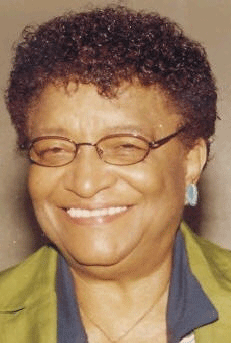 On November 11, the National Electoral Commission of Liberia declared Ellen Johnson-Sirleaf to be President-elect of Liberia, paving the way for her to become the continent’s first elected female President. Her runoff opponent, George Weah, however, had refused to concede and filed a writ of prohibition with the Liberian Supreme Court to halt the ballot counting. Nonetheless, the final, certified results showed Johnson-Sirleaf beating her rival, soccer superstar Weah, 59.4 per cent to 40.6 per cent.
On November 11, the National Electoral Commission of Liberia declared Ellen Johnson-Sirleaf to be President-elect of Liberia, paving the way for her to become the continent’s first elected female President. Her runoff opponent, George Weah, however, had refused to concede and filed a writ of prohibition with the Liberian Supreme Court to halt the ballot counting. Nonetheless, the final, certified results showed Johnson-Sirleaf beating her rival, soccer superstar Weah, 59.4 per cent to 40.6 per cent.
“It’s a new day for Liberia and after living in exile for more than 20 years, I think many of us were prepared to support anyone who was prepared to take the country forward,” said Ellen Dunbar, Executive Producer of the Washington, D.C.- based Miss African International Pageant. Dunbar remembers hearing of Johnson-Sirleaf when she was attending kindergarten in the West African country.
Educated at Harvard, Johnson-Sirleaf became involved in government when she became Finance Minister in President William Tolbert's administration in 1970. While running for Senate in 1985, she spoke out against the military regime, and was sentenced to ten years in prison. Released after a short period, she left in exile and returned in 1997 as a World Bank and Citibank economist.
Initially supporting Charles Taylor's rebellion against General Samuel Doe, she later went on to oppose him, and ran against him in the 1997 presidential elections. Taylor charged her with treason. She campaigned for the removal of President Taylor from office, playing an active and supportive role in the transitional government, as the country prepared itself for the 2005 elections.
In the 2005 election, University of Maryland Law Professor and former campaign advisor to former Baltimore mayor Kurt Schmoke, Larry S. Gibson, advised Johnson-Sirleaf. One of the issues he sadly had to tackle was her wardrobe. “She had to be a modern African woman, but in a way that wasn’t offensive,” said Gibson, as reported in the Baltimore Sun. The result was that many of her most prominent campaign pictures depicted her in western dress versus traditional African headdress. “Women candidates have to deal with all these delicate issues,” Gibson continued.
“Everyone is proud of her qualifications, but I think many are most proud that a male dominated society was able to look through our tradition of male domination and chose a woman," added Eugene Easton, a Liberian and Presbyterian Minister living in Washington. He continued, “They had to overcome someone who made them feel good for someone who was good for them.”

